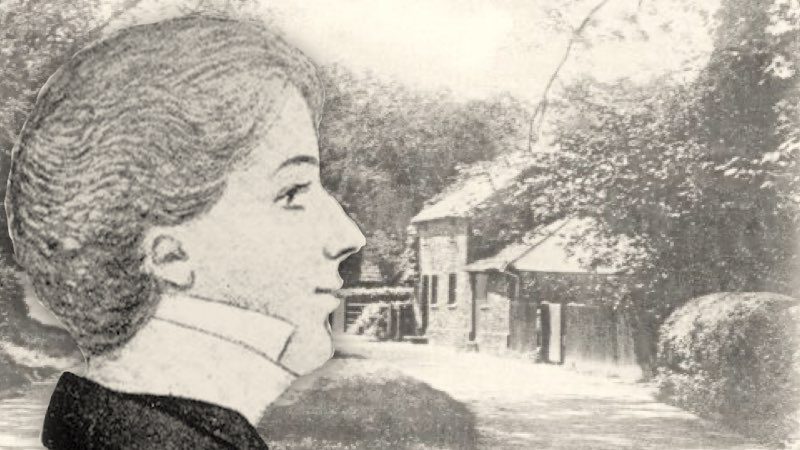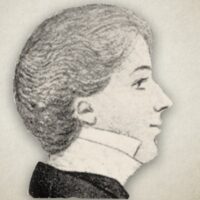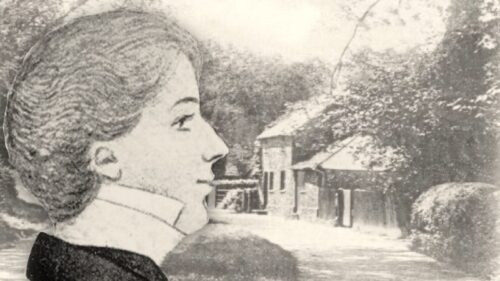
The Learned And Great Find The Doctrines Of Grace Great Foolishness
October 28th, 1830
My dear Brother,
I arrived safely at Sutton on the Saturday afternoon. I saw Mr. de Merveilleux, and had a little conversation with him. I believe him to be a lover of gospel truth, and I hope that you will call upon him when you go to Stamford. I met a few friends at his house, and spoke a few words to them. They seemed very desirous to hear, and, I trust, are spiritually hungering after the bread of life. My friend Philpot is ill, and not able to preach. He is coming to see me next week. He is a dear child of God.
I shall be glad to hear in your next letter what advances you are making in religion. I hope that you read your Bible much, and talk with those who fear the Lord. You will find much opposition, both within and without, against a spiritual work; but if it is the Lord’s work, it will surely be carried on. You will be surprised to find so much enmity against the gospel; but the word of God shows clearly it must be so. The learned and great find the doctrines of grace great foolishness, and they are constrained to bear a testimony to the truth by saying so. If I found many, of any description, speaking in favor of the doctrines I maintain, it would excite a doubt in my mind whether they were true. You will be perplexed with many favorite texts of the Arminians; but the Lord in due time will make them plain to you and consistent with the doctrines of grace.
Do not be disturbed because you have not much knowledge of divine things. Knowledge profits not unless it is given by God the Holy Spirit. “The kingdom of God is not in word, but in power.” All knowledge avails but little, if there be not a knowledge of Christ Jesus. It is not receiving the gospel in word only, but in power, and in the Holy Spirit, and in much assurance which saves. You will find that the grace of God which brings salvation will teach you to deny ungodliness and worldly lusts and to live soberly, righteously, and godly in this present evil world. You will appear to yourself and others a new creature. Many have a single eye, but it is not to God, but to money. But as a child of God you will be constrained by the love of Christ, to give up everything for His sake, who died that you might live.
Do not imagine that a mere knowledge of the plan of salvation is salvation. If rightly taught, you will be led to rejoice in Christ as the pearl of great price, to love the brethren, and to do many things which the world hates and condemns. As a child of God, you are not of the world, but are chosen out of it. You are only a stranger and a pilgrim here. You are looking to the glorious moment when you are to be delivered from the bondage of corruption; for to die, and be with Christ, is far better than to live in this vain world. Remember that all that you suffer and lose in the cause of Christ, you are to consider gain. Rejoice to think that you are counted not only worthy to believe in Him, but also to suffer for His sake. Light has no communion with darkness, and the believer has no part with the infidel. Having a saving interest in Christ, and knowing it, you are rich indeed; you are a son of God; you have a glorious mansion prepared for you; and you are sure to have it, for Christ can no more do without you, than you can without Christ. Your security is in Him. “Your life is hid with Christ in God.” Because He lives, you shall live also.
In one sense, you are saved by good works, because Christ’s good works are your good works, because you are one with Him. It is this glorious union between Christ and His church which gives such consolation and joy to the members of His body. “As Christ is, so are we in this world.” “For we are made to sit together in heavenly places” with Christ Jesus, and are “blessed with all spiritual blessings in heavenly places in Him.” May we go on in the narrow way rejoicing in our great Captain, who will see us safely landed on the heavenly shore. “He is faithful who has promised,” and He will never leave the work of His own hands. Blessed be His name forever!
There is but little salt anywhere, and it is much scattered. You will find it difficult to give up your own religion. May the God of peace and love be with all His dear sheep in Oakham; and that you may abound in faith and love, is the sincere prayer of
Your affectionate Brother, William Tiptaft.
William Tiptaft (1803-1864) was a Strict and Particular Baptist pastor. In 1831, he oversaw the construction of a chapel in Abingdon, where he remained as the Pastor until his death. John Hazelton wrote of him—
“William Tiptaft…exercised a ministry largely used to the awakening of sinners and to the driving of those who had only a name to live from the false confidences in which they trusted.” Joseph Philpot wrote of him—“He seemed ever ready to make any personal sacrifice for the glory of God or the good of His people. Time, money, health, strength, life itself, he did not consider his own. He felt he was but a steward who held them in trust, and who might be called at any hour to render an account of his stewardship. To live to God, to walk in His fear, to serve and please Him, to preach His truth, to do His work, to know and obey His will, and to be made a blessing to His people, seemed to be his daily end and aim. I have known men of greater natural abilities, of deeper and more diversified experience, of more shining pulpit gifts, of more enlarged views of Divine truth; but I have never seen anyone, whether minister or private Christian, who approached him in his own peculiar line of practical Godliness, carried out with undeviating consistency for the thirty-five years during which I had the pleasure and profit of his friendship. The Churches of truth needed an example of the practical power of the doctrines which they profess. A light, loose, Antinomian spirit had too much prevailed, and with a great deal of religious talking there was a very small amount of religious walking. But however low quickened souls or living Churches may sink, they have still a conscience made tender in the fear of God, and to this conscience William Tiptaft's keen, pithy remarks, and, above all, his Godly life and shining example, commended themselves."
William Tiptaft's Letters




